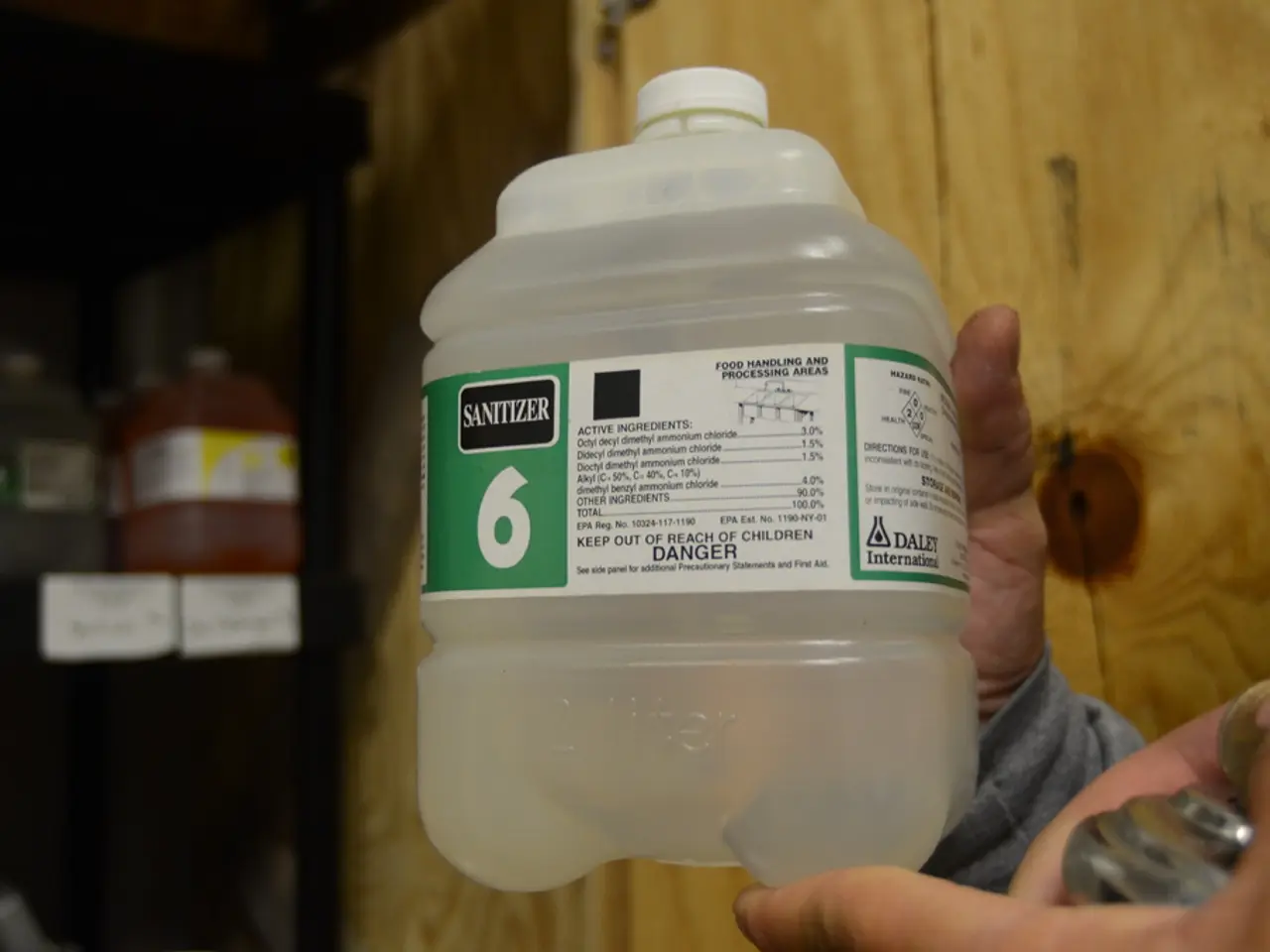Antibiotics not effective for treating stomach flu; essential factors to consider
In the realm of common illnesses, gastroenteritis, often colloquially known as 'stomach flu', is a prevalent issue that affects millions worldwide. This article aims to shed light on the differences between viral and bacterial gastroenteritis, the importance of hydration, and the appropriate use of antibiotics.
Firstly, it's essential to understand that viral gastroenteritis, typically caused by viruses such as norovirus and rotavirus, does not respond to antibiotics. Antibiotics target bacteria, not viruses, and their use in viral cases is not beneficial. Instead, those suffering from viral gastroenteritis should focus on replenishing lost electrolytes and fluids. Water, broths, fruit juices, sports beverages, and oral rehydration solutions can all aid in this process.
On the other hand, bacterial gastroenteritis, also known as food poisoning, may sometimes require antibiotics, but only if the infection is confirmed or in severe cases. Several types of bacteria, including Campylobacter, Salmonella, and Shigella, can cause food poisoning. However, most cases of bacterial gastroenteritis are mild and self-limiting, and empiric use of antibiotics is often avoided to prevent antibiotic resistance.
Measures to prevent both viral and bacterial gastroenteritis include maintaining high levels of hygiene and sanitation, washing hands regularly, disinfecting surfaces, and washing fabrics. In some cases, vaccines for rotavirus are available to help protect against viral gastroenteritis.
It's important to note that symptoms of severe dehydration, such as frequent dizziness, producing little or no urine, drowsiness or losing consciousness, require immediate medical attention. In such cases, a doctor may prescribe antibiotics for bacterial gastroenteritis if necessary.
In summary, viral gastroenteritis is primarily treated with supportive care—such as hydration, rest, and a bland diet—to relieve symptoms and prevent dehydration. Bacterial gastroenteritis may sometimes require antibiotics, but only if the infection is confirmed or in severe cases. Misuse of antibiotics in viral cases is not helpful and may cause antibiotic-associated diarrhea and microbiota disruption.
References:
- Centers for Disease Control and Prevention. (2021). Antibiotic/Antimicrobial Resistance. [online] Available at: https://www.cdc.gov/drugresistance/biggest-threats.html
- National Health Service. (2021). Gastroenteritis (stomach bug). [online] Available at: https://www.nhs.uk/conditions/gastroenteritis/
- Mayo Clinic. (2021). Food poisoning. [online] Available at: https://www.mayoclinic.org/diseases-conditions/food-poisoning/symptoms-causes/syc-20355702
- World Health Organization. (2021). Antibiotics: Resistance and Intelligent Use. [online] Available at: https://www.who.int/news-room/fact-sheets/detail/antimicrobial-resistance
- Centers for Disease Control and Prevention. (2021). Norovirus. [online] Available at: https://www.cdc.gov/norovirus/about/index.html
Read also:
- Is it advisable to utilize your personal health insurance in a publicly-funded medical facility?
- Dietary strategies for IBS elimination: Aims and execution methods
- Benefits, suitable dosage, and safety considerations for utilizing pumpkin seed oil in treating an overactive bladder
- Harmful Medical Remedies: A Misguided Approach to Healing




